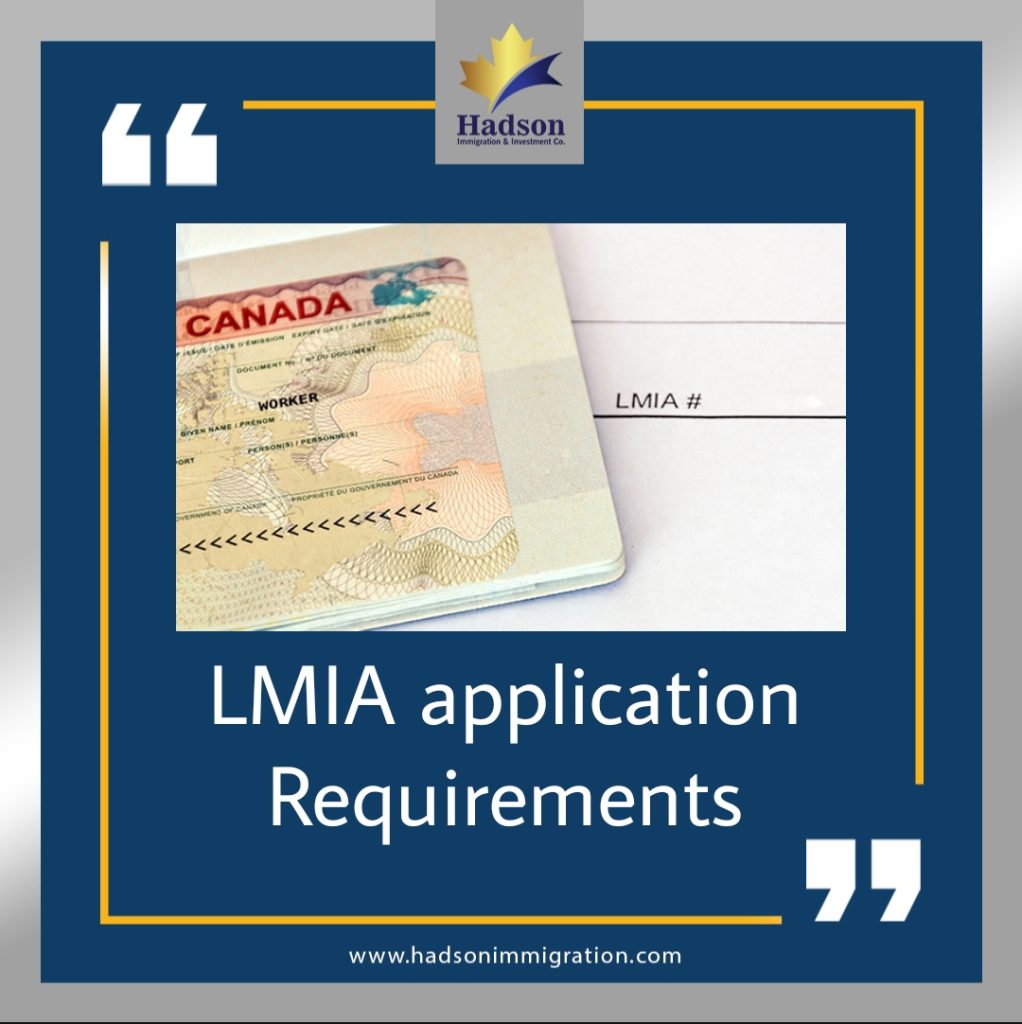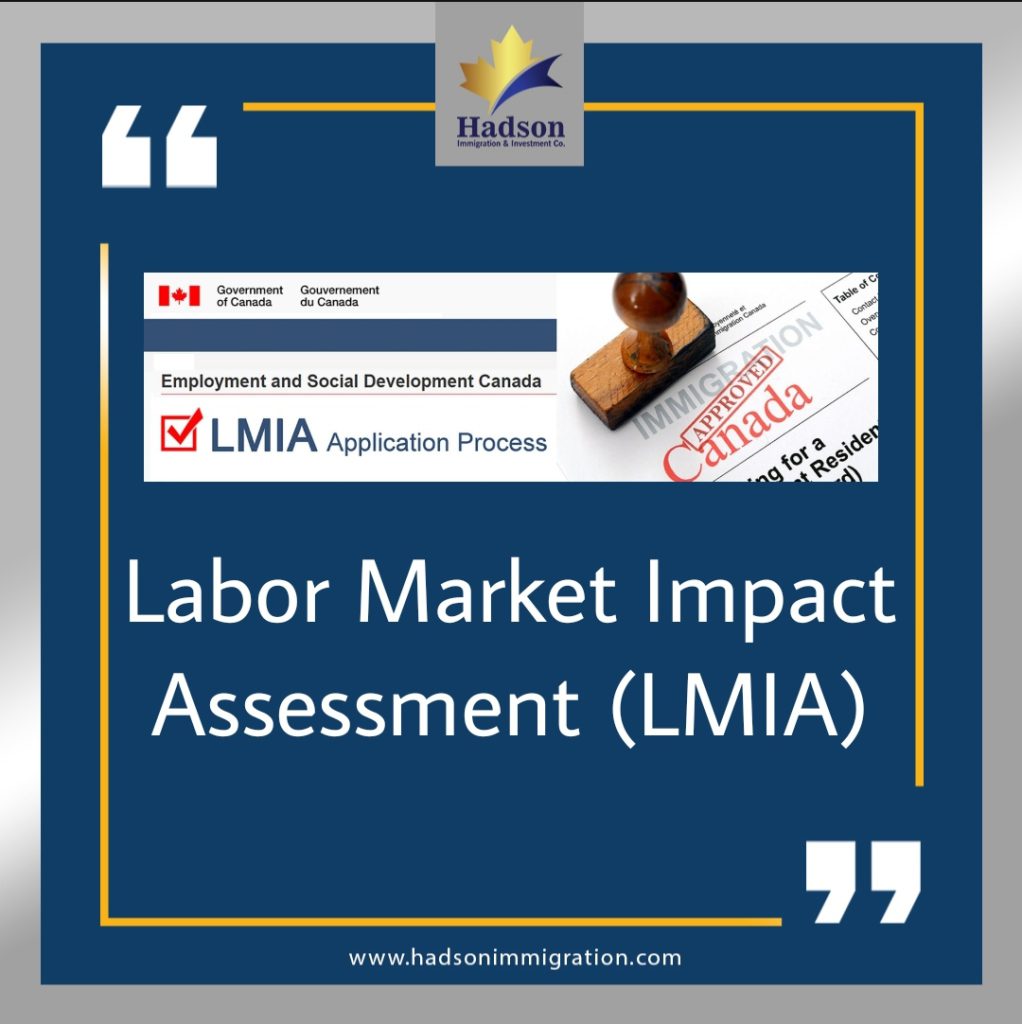LMIA Work Permits
A Labour Market Impact Assessment (LMIA)
is a document issued by Employment and Social Development Canada (ESDC) assessing the impact of hiring a foreign national in Canada.
A foreign national cannot apply for an LMIA. Rather, LMIAs are documents which must be applied for by a Canadian employer. While sometimes it is possible to hire a foreign worker who is exempt from needing an LMIA, or who is exempt from requiring a work permit, all streams of Canada’s Temporary Foreign Worker Program (TFWP) require that an employer obtain an LMIA in order to hire outside of Canada.
As well, many of Canada’s immigration pathways to permanent residency require that applicants show a positive LMIA in order to claim points for a Canadian job offer.
LMIA Application
An employer may submit an application for an LMIA as early as 6-months prior to the intended start date for the position.
LMIA application procedures vary depending on the wage of the person being hired. Employers should consult the median hourly wages of their province or territory in order to determine whether their position is considered high-wage or low-wage, as low-wage positions will require the employer to meet additional criteria. There are specialized streams for employers wishing to obtain LMIAs for certain areas of employment. These include:
LMIA Application Requirements
LMIA applications are submitted in hard copy, by mail, to the appropriate Service Canada Processing Centre.
Applications must include evidence that the following criteria have been met:

Processing Fee:
All applications for LMIAs include a $1000 CAD processing fee which will not be refunded even if the result is negative. Certain applicants under the LMIAs for in-home caregivers may be exempt from this fee.
Business Legitimacy Documents:
Documents proving that the employer’s status as a legitimate Canadian business.
Transition Plan:
Employers must submit a plan for how they intend to address the need to hire foreign nationals. Eventually, employers are expected to hire Canadian citizens and permanent residents rather than TFWs.
Recruitment Efforts:
Employers must submit evidence that they made substantial efforts to recruit Canadian citizens and permanent residents to fill the position prior to hiring a TFW.
Wages:
Applications must include information regarding the TFWs wages. This will differentiate the high-wage positions from low-wage positions and ensure that TFWs are paid the same amount for labour as their Canadian equals.
Workplace Safety:
TFWs are entitled to the same standards of workplace health and safety as Canadians in the same position. For this reason, employers must provide evidence that TFWs will be covered by insurance which is at minimum equivalent to the health coverage offered by the province or territory where the business is located.
What Happens After LMIA is Approved
After an LMIA application has been processed, employers will be issued a decision. If the employer is issued a positive LMIA, they can proceed with hiring a foreign national. If a negative LMIA is issued then unfortunately the employer is not approved to hire a foreign national.
Positive LMIAs are valid for 6 months from the date of issue. After receiving a positive LMIA, the employer must notify the foreign national so that they can apply for their work permit or permanent residence.
In certain conditions, employers may apply to have their LMIA application processed in 10 days. To qualify for expedited processing, an employer must be located outside of Quebec and meet one of the following requirements:
- Highest wage positions: top 10% of wages earned by Canadians in the province/territory of the job
- Skilled Trades: paid at least the median provincial/territorial wage for the position.
- Short-Term positions: 120 days or less
- Express Entry: the LMIA is to assist an Express Entry candidate

Median Hourly Wages by Province or Territory
If an employer is hiring a TFW to be paid at or above the median hourly wage for their province or territory then they must go through the high-wage workers stream for LMIAs. If an employer is hiring a TFW to be paid below the median hourly wage then they must go through the low-wage workers stream.
Province/Territory | Median hourly wages prior to April 30, 2022 | Median hourly wages as of April 30, 2022 |
|---|---|---|
| Alberta | $27.28 | $28.85 |
| British Columbia | $25.00 | $26.44 |
| Manitoba | $21.60 | $23.00 |
| New Brunswick | $20.12 | $21.79 |
| Newfoundland and Labrador | $23.00 | $24.29 |
| Northwest Territories | $34.36 | $37.30 |
| Nova Scotia | $20.00 | $22.00 |
| Nunavut | $32.00 | $36.00 |
| Ontario | $24.04 | $26.06 |
| Prince Edward Island | $20.00 | $21.63 |
| Quebec | $23.08 | $25.00 |
| Saskatchewan | $24.55 | $25.96 |
| Yukon | $30.00 | $32.00 |
Sources:
- wage rates in column 2 are based on Statistics Canada, Labour Force Survey 2019 (1-year average)
- wage rates in column 3 are based on Statistics Canada, Labour Force Survey 2019 to 2021 (2-year average)
Exemptions to LMIA Requirements
In certain cases, it may not be necessary for an employer to obtain an LMIA in order to hire a foreign worker. The majority of LMIA exemptions are managed through the International Mobility Program.
Employers with LMIA in Canada (Approved)
Every year the Department of Employment and Social Development publishes Positive LMIA Employers List here. It excludes all personal names and LMIAs in support of permanent residence. However, it tracks positions and locations on all positive LMIAs.
Which Employer Can Apply for LMIA?
In all other circumstances, employer eligibility for LMIA will be determined by a stream. Only if an employer applies for LMIA to support permanent residence, there is a requirement to be in business for at least 1 year before application. For all other types, employer requirements for LMIA are the following:
- Has a legitimate business.
- Provides goods or services to the public.
- Is able to pay a salary to a foreign worker.
- Has a genuine need for a foreign worker.
- Has not laid-off employees in the 12-months period preceding application.








welldone